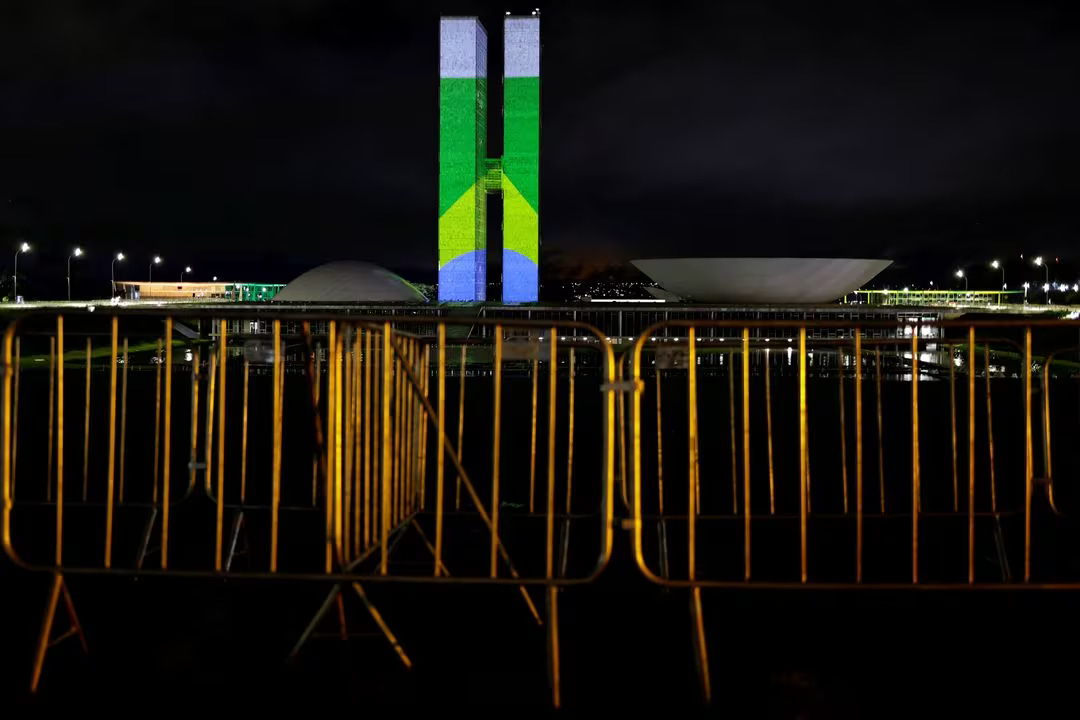Brazil -- a year after Jan. 8
Jan. 8, 2024

Brazil is still reeling from riots in Brasilia exactly a year ago, in which supporters of former President Jair Bolsonaro wrought extensive destruction on government buildings in the capital city.
“The Brasilia riots, which drew instant comparisons to the Capitol invasion in Washington two years earlier by supporters of Donald Trump, laid bare the violent divisions tearing at Brazil in the wake of Lula's narrow win over Bolsonaro the previous October,” reports AFP.
Many Brazilians interpret the episode through the prism of intense political polarization, and thousands of arrests “have led supporters of the former president to say their freedom of speech is being violated and claim they are politically persecuted,” reports the Associated Press.
The government will hold ceremonies in the capital, today, celebrating its democratic system, reports Reuters. (See also El País.)
“Brazilian democracy prevailed — and emerged stronger,” writes President Luiz Inácio Lula da Silva in a Washington Post editorial. “Government that improves lives is the best answer we have to extremists who attack democracy.”
Migration
U.S. Customs and Border Protection has released more than 2.3 million migrants into the United States at the southern border under the Biden administration. A new Homeland Security report details that officials have allowed in the vast majority of migrant families and some adult groups, reports the Washington Post.
Cuba
Two documentaries by journalist Liz Oliva Fernández seek to show the devastating impact of U.S. sanctions against the island: “We’re talking [about] an empire like the United States that not only stops Cuba having normal relations with the United States, but also stops it having normal relations with the rest of the world.” (Guardian)
Regional
“Colombia and Ecuador broke up a criminal organization responsible for sending up to five tons of cocaine per month to the U.S. and Europe and captured the Colombian brothers in charge,” reports Reuters.
Argentina
“The current political situation in Argentina is typical of a president who was elected on a platform of radical change but lacks the congressional majority to implement it,” writes Oliver Stuenkel in Americas Quarterly. ”By presenting a slew of presidential decrees and a massive legal package in the first days of his presidency, Javier Milei signals that he will try, nonetheless. Yet the hurdles—in the legislature, the judiciary, and in the streets, where the opposition will organize large protests—are significant, and the president will most likely have to make substantial concessions.”
Argentina’s ruling party is open to negotiate details on the “omnibus law” submitted to Congress by President Javier Milei, according to House of Deputies President Martín Menem, though the gist of the bill is not up for discussion. (Infobae)
In addition to economic deregulation, the mega presidential decree and omnibus reform bill rollback regulations that aim to protect average people from powerful economic actors, reports Página 12.
Milei’s radical reform program “was heavily influenced by Argentinian neoliberal thinktanks belonging to something called the Atlas Network, a global coordinating body that promotes broadly the same political and economic package everywhere it operates,” according to George Monbiot in the Guardian.
Horacio Verbitsky contextualizes Milei’s army shakeup last week: “Different specialists consulted for this note, including officials from previous governments, agree that the government wants younger and more frightened generals, who will not protest the auction of the Army's real estate and manufacturing assets, which will be recommended by the audit provided in the DNU.” (Cohete a la Luna)
Argentine vice president Victoria Villarruel has proved an able communicator and her skills as a political negotiator will be key for the Milei administration’s legislative agenda. But her focus is not economic, rather she “has built her career on hardline cultural conservatism,” reports the Financial Times.
A U.S. court case involving a $16bn debt Argentina owes to former private shareholders of state energy company YPF could become a headache for the pro-market Milei government, reports the Financial Times.
Milei will be moving to the official presidential residence today, following months in a downtown hotel. The delay is partially due to reforms to create a living space for his four mastiffs, but also to clear “bad energies,” reports Infobae.
More Brazil
“Brazil's National School Feeding Program (PNAE) is one of the largest school meals programs in the world. Embedded in the country's constitution, it's a key part of the national strategy to combat hunger,” reports NPR.
Brazil postponed for the second time the reintroduction of requirements to obtain tourist visas for citizens of the U.S., Australia and Canada, reports the Associated Press.
Brazil’s strong exports last year are reminiscent of the commodities bonanza in the early 2000s, reports Bloomberg.
“Leading artists, Indigenous activists and politicians across Brazil are urging people to contribute to a fund to help the son of the slain Amazon activist Bruno Pereira, who has been diagnosed with a rare form of cancer,” reports the Guardian.


